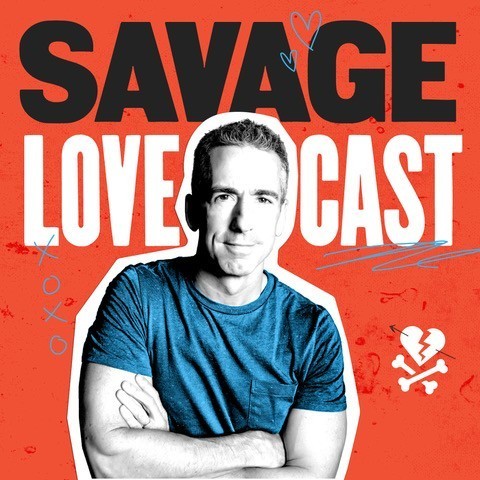I'm still on vacation—week two—but the "Savage Love Letter of the Day" must go on. Subbing for me this week...
Daniel Bergner writes for the New York Times Magazine and is the award-winning author of four books of non-fiction, including The Other Side of Desire, a terrific book about kinks, kinksters, and the kinks in being human. His latest book is What Do Women Want?, which Salon said "should be read by every woman on earth" and called "a must-read for any person with even a remote erotic interest in the female gender," and which the Atlantic said "shatters many of our most cherished myths about sexuality." Check out Daniel's new TEDxEast talk about women and desire. Daniel will be answering your questions all week. And while Daniel has been a guest on the "Savage Lovecast," he's new so… take it easy on him in the comments, okay? –Dan
Committed suicide and died July 4th of this year…. Tell your readers…. It is something that has to be brought out in the sunshine and given a complete airing without embarrassment…. If you are a father hug your children and tell them you love them every day…. Tell them at the end of every phone call, correspondence or email.
—One Father
My response after the jump...
The letter you have just read did not arrive in Dan’s in-box but rather in my own. I received it a week ago from the father of a man I wrote about in The Other Side of Desire, a man whose paraphilia, whose fetish, whose point of human difference, was that he was drawn erotically, powerfully, to women’s feet. For him, women’s feet were the epicenter of lust; they were what breasts and buttocks and genitals are for most men. This might sound benign. It might seem lightly comical. But, though this man was a doting father to his young, disabled son and a devoted husband and a determined breadwinner, he saw himself as a monster. He thought of himself as the Phantom in Andrew Lloyd Weber’s The Phantom of the Opera, as terribly, irredeemably disfigured—the disfigurement, in his case, neurological, his mind’s wiring misaligned, his desires hideous.
Eros is a spectacular force that can also be—for many of us, in ways dramatic, like his, or subtle—a source of shame. Eros can bind us to each other, but it can also leave us profoundly isolated. Our desires tend to be private territory. We believe that our painful longings are ours alone. We keep them that way. Even when we know rationally, as he did, that others feel the same way we do, we don’t trust this knowledge. What we know somehow isn’t true.
Feeling monstrous and beyond rescue, the man whose story I told a few years ago killed himself a few weeks ago. This blog is, I hope, the right place to do exactly what his father asks, to affirm that the things that fill us with shame should be brought “out in the sunshine” and given “a complete airing without embarrassment.” Savage Love may not be the most obviously sentimental venue in the world, but just beneath the surface it is plenty sentimental, the perfect spot to relay a father’s plea that we tell each other, on a daily basis, that we’re not alone. In a sense, this was precisely what I hoped my book had done. But it had not done it well enough. Prose, like knowledge, has its limits.















